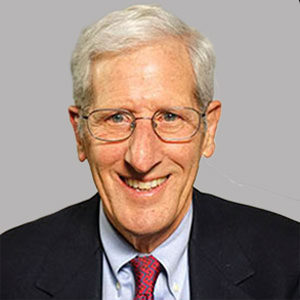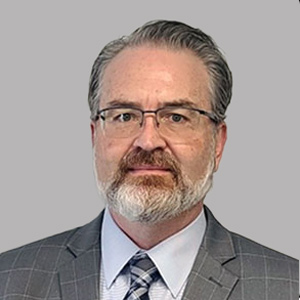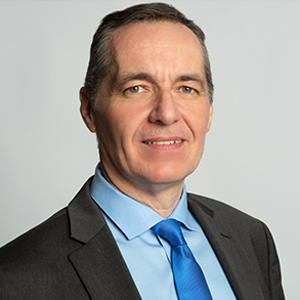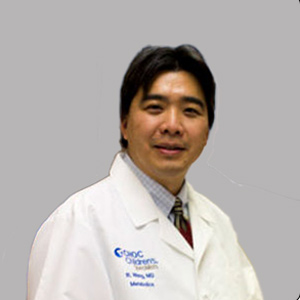Leadership
We Have Proven Expertise in Rare Disease Drug Development.
Our leadership team has collectively more than 100 years of experience and deep expertise in the discovery, non-clinical, clinical, and commercial development of drugs that treat rare diseases, particularly lysosomal storage disorders (LSDs).
Our team appreciates the unmet medical need for those affected by LSDs and is committed to the promise of enzyme replacement therapies (ERTs) and gene therapies by harnessing the power of mannose 6-phosphate (M6P) with our innovative S1S3 co-expression platform technology.
Drawing from relevant science, non-clinical and clinical development, regulatory affairs, manufacturing, commercial operations, financial and general management, and other vital functions, we apply our experience to develop next generation therapies, whether enzyme replacement or gene therapies, for LSDs. We make, implement, and critique decisions with efficiency and accountability, drive to our stated objectives, and make course corrections as warranted.



Cuong Do
Founder and Chairman

Stuart Kornfeld
Washington University. Cofounder, M6PT & Chair, SAB
Cuong is the founder and chairman of M6PT, his fourth biotech startup. Currently, Mr. Do is the CEO of BioVie. He previously founded Callidus Biopharma and Lysodel Therapeutics. Amicus Therapeutics acquired Callidus for its drug for Pompe disease.
Cuong retired in December 2020 as President of Samsung’s Global Strategy Group, where he helped set the strategic direction of the Group’s diverse businesses, including its biosimilars and biologics contract manufacturing businesses. He was also the Chief Strategy Officer for Merck, Tyco Electronics, and Lenovo. In addition to founding biotech companies, Cuong also founded four high-tech companies, including CareVisor, Identifor, and Fitwise.
He serves or has served on the board of AngioSafe, BioVie, Curve Financial, Hope Trust, ILiAD Biotechnologies, Laava, RenalSense, and WuXi AppTec (the world’s largest contract research organization serving the pharmaceutical industry). He also serves or served on the board of Autism Speaks, Caring for Cambodia, Celebrate the Children school, Fulbright University Vietnam, the Institute for Exceptional Care, Newark Academy, Profectum Foundation, and the Tuck School of Business.
Cuong received his Bachelor of Arts in biochemistry and economics from Dartmouth College and an MBA from the Tuck School of Business at Dartmouth.
Stuart Kornfeld is the cofounder of M6PT, the chairman of its SAB, and a professor in the Department of Medicine and the Department of Biochemistry and Molecular Biophysics at Washington University Medical School. His lab discovered the mechanism whereby lysosomal enzymes acquire mannose 6-phosphate. Dr Kornfeld has devoted decades to understanding mannose 6-phosphate and is considered the leading expert. He has advised multiple companies working on lysosomal storage disorders. Dr. Kornfeld is a member of the National Academy of Sciences and is a recipient of the E. B. Wilson Medal from the American Society for Cell Biology and the Karl Meyer Award from the Society for Glycobiologyis. In addition, he received the 2022 Roscoe O Brady Award for Innovation and Accomplishment.

Cuong Do
Founder and Chairman

Pawel Krysiak
President & CEO

Hung Do
Chief Scientific Officer
Cuong is the founder and chairman of M6PT, his fourth biotech startup. Currently, Mr. Do is the CEO of BioVie. He previously founded Callidus Biopharma and Lysodel Therapeutics. Amicus Therapeutics acquired Callidus for its drug for Pompe disease.
Cuong retired in December 2020 as President of Samsung’s Global Strategy Group, where he helped set the strategic direction of the Group’s diverse businesses, including its biosimilars and biologics contract manufacturing businesses. He was also the Chief Strategy Officer for Merck, Tyco Electronics, and Lenovo. In addition to founding biotech companies, Cuong also founded four high-tech companies, including CareVisor, Identifor, and Fitwise.
He serves or has served on the board of AngioSafe, BioVie, Curve Financial, Hope Trust, ILiAD Biotechnologies, Laava, RenalSense, and WuXi AppTec (the world’s largest contract research organization serving the pharmaceutical industry). He also serves or served on the board of Autism Speaks, Caring for Cambodia, Celebrate the Children school, Fulbright University Vietnam, the Institute for Exceptional Care, Newark Academy, Profectum Foundation, and the Tuck School of Business.
Cuong received his Bachelor of Arts in biochemistry and economics from Dartmouth College and an MBA from the Tuck School of Business at Dartmouth.
Pawel is a biotechnology executive with 20 years of experience in rare diseases, oncology, and digital health. His previous experience includes President & CEO of Seva Therapeutics, VP of Sales, and Business Development at EmpiraMed, VP of Commercial and Operations at Ceerdis Corporation, Area Director & General Manager at BioMarin Pharmaceuticals, as well as progressively important sales, marketing, and commercial strategy roles at Genzyme Corporation. Mr. Krysiak started his career in specialty sales at Merck.
Pawel obtained a Bachelor of Science in both biomedical sciences and biochemistry from the University of Guelph and a Master of Science in molecular physiology from the University of Western Ontario. In addition, he received executive business training from Ivey Business School and continuing business education from Harvard Business School.
Hung brings more than 22 years of experience in the field of genetic diseases with particular expertise in lysosomal storage diseases and enzyme replacement therapies. Prior to joining M6P Therapeutics, Dr. Do was the Chief Science Officer at Amicus Therapeutics. Hung was a Co-founder and the Chief Scientific Officer of Callidus Biopharma, a privately held biologics company that was acquired by Amicus. Prior to founding Callidus, he headed early discovery research to decipher the mechanism of action for small molecule pharmacological chaperones at Amicus. He previously helped to demonstrate proof-of-concept for ERTs and served as the project leader for a second-generation Pompe ERT at Genzyme. Dr. Do also led molecular biology, cell culture and purification work and helped develop an in vitro protein modification process for improving drug targeting for ERTs at Novazyme, which was acquired by Genzyme.
Dr. Do received his Ph.D. in medical biochemistry and genetics from Texas A&M University and did his post-doctoral fellowship in Hematology/Oncology at Emory University. Dr. Do utilizes his focused training in protein synthesis, folding & trafficking to develop better targeted therapeutic treatments for genetic diseases.

Russell Gotschall
VP, R&D

Eric Grinstead
Commercial

Lin Liu
Director, R&D
Russell is the VP of R&D and brings more than 25 years of drug discovery and development to M6PT. Prior to joining M6P, Russell served as VP of R&D at Amicus Therapeutics, where he managed pre-clinical R&D and helped build a world-class discovery and research organization that maximizing protein engineering and analytics capabilities in the developing of a robust pipeline of novel gene therapy programs in collaboration with the University of Pennsylvania.
Russell has had a long career in the clinical and biopharmaceutical industry utilizing his glycobiology expertise to support the development of analytical assays to understand pediatric pharmacology and to support drug development of advanced therapeutics for rare diseases.
His experience spans multiple indications including lysosomal storage diseases, cardiovascular, mineral metabolism disorders, and chronic kidney disease. Russell graduated with a master’s degree in biology with an emphasis in glycobiology from Wichita State University.
Eric provides commercial, operations, and leadership capabilities to M6PT. For over 30+ years, he held specific functional responsibilities for sales, marketing, supply chain, operations, pricing, reimbursement, policy, government affairs, strategy, communications, and early access programs, both in local and global markets, and sat on management teams at Alexion, Synageva, and Clementia with general responsibilities for commercializing ultraorphan drugs. Additionally, Eric served as President of the Safety Net Foundation and the Complement Foundation, two not–for–profit entities that provide drugs at no cost to qualified individuals.
Eric graduated from Westmont College with a B.A. in religion/religious studies.
Lin is the Director of R&D at M6PT and is co-inventor of a modified version of the GlcNAc-1-phosphotransferase enzyme and co-author of the patent application for it. He joined M6PT in 2019 as senior scientist following his postdoctoral training in Dr. Stuart Kornfeld’s lab. Lin has authored or co-authored 13 peer-reviewed publications.
Lin received both his B.S. in Biology and his Ph.D. in Biophysics from Huazhong University of Science and Technology. He also completed his postdoctoral trainings from both UT Southwestern Medical Center in Cell Biology and Washington University in Biochemistry & Molecular Biophysics.

Gavin Maitland
Finance
Gavin is a finance executive with 25 years of experience, the last 14 in the life sciences sector. Prior to his CFO role at M6PT, he has delivered fractional CFO support and consulting services to life science companies across therapeutic areas in both device and drug companies.
He has previously held positions as Chief Financial Officer at IP Group plc, a listed venture capital fund in London and APP Group, an IT services portfolio company of Warburg Pincus in Prague, Czech Republic. Previously, he worked for TNT Express Worldwide, where he delivered internal financial audits and systems reviews in global subsidiary companies and served as the financial controller in subsidiary companies in Singapore, France, and Eastern Europe. Gavin began his business career as an auditor with Price Waterhouse Coopers.
Gavin graduated from the University of Dundee, Scotland with a Bachelor of Administration, is a member of the Institute of Chartered Accountants of Scotland (ICAS) and holds an MBA from London Business School.
We have an exceptional Scientific Advisory Board (SAB) that includes the world’s leading expert in lysosomal protein trafficking including the mannose 6-phosphate (M6P) pathway in Dr Kornfeld and world-renowned scientists, academics, and thought leaders in LSDs. Our SAB works closely with our leadership team to further advance our innovative pipeline of candidates for the treatment of lysosomal storage disorders (LSDs).

Stuart Kornfeld

Nancy Dahms

Gregory Enns
Stuart Kornfeld is the cofounder of M6PT, the chairman of its SAB, and a professor in the Department of Medicine and the Department of Biochemistry and Molecular Biophysics at Washington University Medical School. His lab discovered the mechanism whereby lysosomal enzymes acquire mannose 6-phosphate. Dr Kornfeld has devoted decades to understanding mannose 6-phosphate and is considered the leading expert. He has advised multiple companies working on lysosomal storage disorders. Dr. Kornfeld is a member of the National Academy of Sciences and is a recipient of the E. B. Wilson Medal from the American Society for Cell Biology and the Karl Meyer Award from the Society for Glycobiologyis. In addition, he received the 2022 Roscoe O Brady Award for Innovation and Accomplishment.
Nancy Dahms, Ph.D., is a Professor of Biochemistry at the Medical College of Wisconsin. She received her doctorate degree from Johns Hopkins University School of Medicine where she studied site-specific N-glycosylation. As a postdoctoral fellow at Washington University School of Medicine, she isolated and characterized cDNA clones for the mannose 6-phosphate (M6P) receptors involved in targeting lysosomal enzymes to the lysosome. A glycobiologist and biochemist, Dr. Dahms investigates glycan-binding proteins in the secretory pathway. Her research has defined the molecular basis for the recognition of lysosomal enzymes by the mannose 6-phosphate receptors. Dr. Dahms has developed a rat model for Fabry disease to aid in revealing pathogenic mechanisms of this common LSD.
Gregory Enns, MD, is a Professor of Pediatrics and Genetics at the Lucile Salter Packard Children’s Hospital Stanford School of Medicine. Dr. Enns’ research interests include novel means of diagnosing and treating mitochondrial disorders, with an emphasis on antioxidant therapy, lysosomal disorders, and newborn screening by tandem mass spectrometry. His current pursuits include the analysis of glutathione and antioxidant status in patients who have mitochondrial disorders and the development of new techniques for diagnosing these conditions.

Mark Sands

Anna Tylki-Szymanska

Raymond Wang
Mark S. Sands, PhD, is a Professor in the Departments of Medicine and Genetics at Washington University School of Medicine in St. Louis. Dr. Sands received his PhD in Molecular Pharmacology from the State University of New York at Stony Brook. He was a postdoctoral fellow at The Jackson Laboratory (Bar Harbor, ME) and at the University of Pennsylvania School of Veterinary Medicine before joining the faculty at Washington University School of Medicine. The goals of Dr. Sands laboratory are to better understand the underlying pathogenesis and developing effective therapies for inherited childhood diseases, specifically Mark S. Sands, Ph.D., is a Professor in the Departments of Medicine and Genetics at Washington University School of Medicine in St. Louis. Dr. Sands received his Ph.D. in Molecular Pharmacology from the State University of New York at Stony Brook. He was a postdoctoral fellow at The Jackson Laboratory (Bar Harbor, ME) and at the University of Pennsylvania School of Veterinary Medicine before joining the faculty at Washington University School of Medicine. The goals of Dr. Sands’ laboratory are to better understand the underlying pathogenesis and developing effective therapies for inherited childhood diseases, specifically LSDs. A major focus of his group is to determine the safety and efficacy of adeno-associated viral gene transfer vectors for the treatment of both the CNS and systemic manifestations of these diseases. In addition, his group has developed lentiviral-mediated hematopoietic stem cell-directed gene therapy approaches, as well as small molecule drugs, and more recently rational combinations of these approaches. The primary diseases that Dr Sands studies are mucopolysaccharidosis type VII (MPS VII), Krabbe disease, and Infantile Neuronal Ceroid Lipofuscinosis.
Anna Tylki-Szymanska, MD, is a Professor, Department of Pediatrics and Pediatric Metabolic and Genetic Medicine at the Children’s Memorial Health Institute, Department of Metabolic Anna Tylki-Szymanska, MD, is a Professor, Department of Pediatrics and Pediatric Metabolic and Genetic Medicine at the Children’s Memorial Health Institute, Department of Metabolic Diseases in Warsaw, Poland. In the field of metabolic diseases, Prof. Tylki-Szymanska’s interests are focused mainly on lysosomal diseases. She has specialized for 30 years at the Department of Metabolic Diseases, which is the only referral center in Poland for inborn errors of metabolism. Prof. Tylki-Szymanska’s research interests are directed particularly on neurometabolic and neurodevelopmental diseases. She is especially interested in developing diagnostic assays and new approaches for the treatment of lysosomal diseases. She was a principal investigator for the enzyme replacement therapy (ERT) clinical trials for Gaucher, Fabry, MPS II and substrate inhibition therapy trials for MPS III, LAL deficiency and Gaucher disease. Prof. Tylki-Szymanska is a winner of the Order of the Smile. Order of the Smile is an international award given by children, to adults distinguished in their love, care, and aid for children.
Raymond Wang, MD, is the Director of the Multidisciplinary Lysosomal Storage Disorder Program at CHOC Children’s, Associate Professor, Pediatrics, UC, Irvine School of Medicine. Dr Wang is also a board-certified clinical geneticist and biochemical genetics specialist. He is investigating the role of inflammation and the innate immune system, triggered by arterial lysosomal storage, in promoting MPS cardiovascular disease, and identifying novel therapeutic methods to address treatment-refractory cardiovascular disease in MPS. He also actively works on other research projects related to Niemann-Pick C Disease, Pompe, Hunter, and Sanfilippo Syndrome.

Cuong Do
Founder and Chairman
Cuong is the founder and chairman of M6PT, his fourth biotech startup. Currently, Mr. Do is the CEO of BioVie. He previously founded Callidus Biopharma and Lysodel Therapeutics. Amicus Therapeutics acquired Callidus for its drug for Pompe disease.
Cuong retired in December 2020 as President of Samsung’s Global Strategy Group, where he helped set the strategic direction of the Group’s diverse businesses, including its biosimilars and biologics contract manufacturing businesses. He was also the Chief Strategy Officer for Merck, Tyco Electronics, and Lenovo. In addition to founding biotech companies, Cuong also founded four high-tech companies, including CareVisor, Identifor, and Fitwise.
He serves or has served on the board of AngioSafe, BioVie, Curve Financial, Hope Trust, ILiAD Biotechnologies, Laava, RenalSense, and WuXi AppTec (the world’s largest contract research organization serving the pharmaceutical industry). He also serves or served on the board of Autism Speaks, Caring for Cambodia, Celebrate the Children school, Fulbright University Vietnam, the Institute for Exceptional Care, Newark Academy, Profectum Foundation, and the Tuck School of Business.
Cuong received his Bachelor of Arts in biochemistry and economics from Dartmouth College and an MBA from the Tuck School of Business at Dartmouth.

Stuart Kornfeld
Washington University. Cofounder, M6PT & Chair, SAB
Stuart Kornfeld is the cofounder of M6PT, the chairman of its SAB, and a professor in the Department of Medicine and the Department of Biochemistry and Molecular Biophysics at Washington University Medical School. His lab discovered the mechanism whereby lysosomal enzymes acquire mannose 6-phosphate. Dr Kornfeld has devoted decades to understanding mannose 6-phosphate and is considered the leading expert. He has advised multiple companies working on lysosomal storage disorders. Dr. Kornfeld is a member of the National Academy of Sciences and is a recipient of the E. B. Wilson Medal from the American Society for Cell Biology and the Karl Meyer Award from the Society for Glycobiologyis. In addition, he received the 2022 Roscoe O Brady Award for Innovation and Accomplishment.

Cuong Do
Founder and Chairman
Cuong is the founder and chairman of M6PT, his fourth biotech startup. Currently, Mr. Do is the CEO of BioVie. He previously founded Callidus Biopharma and Lysodel Therapeutics. Amicus Therapeutics acquired Callidus for its drug for Pompe disease.
Cuong retired in December 2020 as President of Samsung’s Global Strategy Group, where he helped set the strategic direction of the Group’s diverse businesses, including its biosimilars and biologics contract manufacturing businesses. He was also the Chief Strategy Officer for Merck, Tyco Electronics, and Lenovo. In addition to founding biotech companies, Cuong also founded four high-tech companies, including CareVisor, Identifor, and Fitwise.
He serves or has served on the board of AngioSafe, BioVie, Curve Financial, Hope Trust, ILiAD Biotechnologies, Laava, RenalSense, and WuXi AppTec (the world’s largest contract research organization serving the pharmaceutical industry). He also serves or served on the board of Autism Speaks, Caring for Cambodia, Celebrate the Children school, Fulbright University Vietnam, the Institute for Exceptional Care, Newark Academy, Profectum Foundation, and the Tuck School of Business.
Cuong received his Bachelor of Arts in biochemistry and economics from Dartmouth College and an MBA from the Tuck School of Business at Dartmouth.

Pawel Krysiak
President & CEO
Pawel is a biotechnology executive with 20 years of experience in rare diseases, oncology, and digital health. His previous experience includes President & CEO of Seva Therapeutics, VP of Sales, and Business Development at EmpiraMed, VP of Commercial and Operations at Ceerdis Corporation, Area Director & General Manager at BioMarin Pharmaceuticals, as well as progressively important sales, marketing, and commercial strategy roles at Genzyme Corporation. Mr. Krysiak started his career in specialty sales at Merck.
Pawel obtained a Bachelor of Science in both biomedical sciences and biochemistry from the University of Guelph and a Master of Science in molecular physiology from the University of Western Ontario. In addition, he received executive business training from Ivey Business School and continuing business education from Harvard Business School.

Hung Do
Chief Scientific Officer
Hung brings more than 22 years of experience in the field of genetic diseases with particular expertise in lysosomal storage diseases and enzyme replacement therapies. Prior to joining M6P Therapeutics, Dr. Do was the Chief Science Officer at Amicus Therapeutics. Hung was a Co-founder and the Chief Scientific Officer of Callidus Biopharma, a privately held biologics company that was acquired by Amicus. Prior to founding Callidus, he headed early discovery research to decipher the mechanism of action for small molecule pharmacological chaperones at Amicus. He previously helped to demonstrate proof-of-concept for ERTs and served as the project leader for a second-generation Pompe ERT at Genzyme. Dr. Do also led molecular biology, cell culture and purification work and helped develop an in vitro protein modification process for improving drug targeting for ERTs at Novazyme, which was acquired by Genzyme.
Dr. Do received his Ph.D. in medical biochemistry and genetics from Texas A&M University and did his post-doctoral fellowship in Hematology/Oncology at Emory University. Dr. Do utilizes his focused training in protein synthesis, folding & trafficking to develop better targeted therapeutic treatments for genetic diseases.

Russell Gotschall
VP, R&D
Russell is the VP of R&D and brings more than 25 years of drug discovery and development to M6PT. Prior to joining M6P, Russell served as VP of R&D at Amicus Therapeutics, where he managed pre-clinical R&D and helped build a world-class discovery and research organization that maximizing protein engineering and analytics capabilities in the developing of a robust pipeline of novel gene therapy programs in collaboration with the University of Pennsylvania.
Russell has had a long career in the clinical and biopharmaceutical industry utilizing his glycobiology expertise to support the development of analytical assays to understand pediatric pharmacology and to support drug development of advanced therapeutics for rare diseases.
His experience spans multiple indications including lysosomal storage diseases, cardiovascular, mineral metabolism disorders, and chronic kidney disease. Russell graduated with a master’s degree in biology with an emphasis in glycobiology from Wichita State University.

Eric Grinstead
Commercial
Eric provides commercial, operations, and leadership capabilities to M6PT. For over 30+ years, he held specific functional responsibilities for sales, marketing, supply chain, operations, pricing, reimbursement, policy, government affairs, strategy, communications, and early access programs, both in local and global markets, and sat on management teams at Alexion, Synageva, and Clementia with general responsibilities for commercializing ultraorphan drugs. Additionally, Eric served as President of the Safety Net Foundation and the Complement Foundation, two not–for–profit entities that provide drugs at no cost to qualified individuals.
Eric graduated from Westmont College with a B.A. in religion/religious studies.

Lin Liu
Director, R&D
Lin is the Director of R&D at M6PT and is co-inventor of a modified version of the GlcNAc-1-phosphotransferase enzyme and co-author of the patent application for it. He joined M6PT in 2019 as senior scientist following his postdoctoral training in Dr. Stuart Kornfeld’s lab. Lin has authored or co-authored 13 peer-reviewed publications.
Lin received both his B.S. in Biology and his Ph.D. in Biophysics from Huazhong University of Science and Technology. He also completed his postdoctoral trainings from both UT Southwestern Medical Center in Cell Biology and Washington University in Biochemistry & Molecular Biophysics.

Gavin Maitland
Finance
Gavin is a finance executive with 25 years of experience, the last 14 in the life sciences sector. Prior to his CFO role at M6PT, he has delivered fractional CFO support and consulting services to life science companies across therapeutic areas in both device and drug companies.
He has previously held positions as Chief Financial Officer at IP Group plc, a listed venture capital fund in London and APP Group, an IT services portfolio company of Warburg Pincus in Prague, Czech Republic. Previously, he worked for TNT Express Worldwide, where he delivered internal financial audits and systems reviews in global subsidiary companies and served as the financial controller in subsidiary companies in Singapore, France, and Eastern Europe. Gavin began his business career as an auditor with Price Waterhouse Coopers.
Gavin graduated from the University of Dundee, Scotland with a Bachelor of Administration, is a member of the Institute of Chartered Accountants of Scotland (ICAS) and holds an MBA from London Business School.
We have an exceptional Scientific Advisory Board (SAB) that includes the world’s leading expert in lysosomal protein trafficking including the mannose 6-phosphate (M6P) pathway in Dr Kornfeld and world-renowned scientists, academics, and thought leaders in LSDs. Our SAB works closely with our leadership team to further advance our innovative pipeline of candidates for the treatment of lysosomal storage disorders (LSDs).

Stuart Kornfeld
Stuart Kornfeld is the cofounder of M6PT, the chairman of its SAB, and a professor in the Department of Medicine and the Department of Biochemistry and Molecular Biophysics at Washington University Medical School. His lab discovered the mechanism whereby lysosomal enzymes acquire mannose 6-phosphate. Dr Kornfeld has devoted decades to understanding mannose 6-phosphate and is considered the leading expert. He has advised multiple companies working on lysosomal storage disorders. Dr. Kornfeld is a member of the National Academy of Sciences and is a recipient of the E. B. Wilson Medal from the American Society for Cell Biology and the Karl Meyer Award from the Society for Glycobiologyis. In addition, he received the 2022 Roscoe O Brady Award for Innovation and Accomplishment.

Nancy Dahms
Nancy Dahms, Ph.D., is a Professor of Biochemistry at the Medical College of Wisconsin. She received her doctorate degree from Johns Hopkins University School of Medicine where she studied site-specific N-glycosylation. As a postdoctoral fellow at Washington University School of Medicine, she isolated and characterized cDNA clones for the mannose 6-phosphate (M6P) receptors involved in targeting lysosomal enzymes to the lysosome. A glycobiologist and biochemist, Dr. Dahms investigates glycan-binding proteins in the secretory pathway. Her research has defined the molecular basis for the recognition of lysosomal enzymes by the mannose 6-phosphate receptors. Dr. Dahms has developed a rat model for Fabry disease to aid in revealing pathogenic mechanisms of this common LSD.

Gregory Enns
Gregory Enns, MD, is a Professor of Pediatrics and Genetics at the Lucile Salter Packard Children’s Hospital Stanford School of Medicine. Dr. Enns’ research interests include novel means of diagnosing and treating mitochondrial disorders, with an emphasis on antioxidant therapy, lysosomal disorders, and newborn screening by tandem mass spectrometry. His current pursuits include the analysis of glutathione and antioxidant status in patients who have mitochondrial disorders and the development of new techniques for diagnosing these conditions.

Mark Sands
Mark S. Sands, PhD, is a Professor in the Departments of Medicine and Genetics at Washington University School of Medicine in St. Louis. Dr. Sands received his PhD in Molecular Pharmacology from the State University of New York at Stony Brook. He was a postdoctoral fellow at The Jackson Laboratory (Bar Harbor, ME) and at the University of Pennsylvania School of Veterinary Medicine before joining the faculty at Washington University School of Medicine. The goals of Dr. Sands laboratory are to better understand the underlying pathogenesis and developing effective therapies for inherited childhood diseases, specifically Mark S. Sands, Ph.D., is a Professor in the Departments of Medicine and Genetics at Washington University School of Medicine in St. Louis. Dr. Sands received his Ph.D. in Molecular Pharmacology from the State University of New York at Stony Brook. He was a postdoctoral fellow at The Jackson Laboratory (Bar Harbor, ME) and at the University of Pennsylvania School of Veterinary Medicine before joining the faculty at Washington University School of Medicine. The goals of Dr. Sands’ laboratory are to better understand the underlying pathogenesis and developing effective therapies for inherited childhood diseases, specifically LSDs. A major focus of his group is to determine the safety and efficacy of adeno-associated viral gene transfer vectors for the treatment of both the CNS and systemic manifestations of these diseases. In addition, his group has developed lentiviral-mediated hematopoietic stem cell-directed gene therapy approaches, as well as small molecule drugs, and more recently rational combinations of these approaches. The primary diseases that Dr Sands studies are mucopolysaccharidosis type VII (MPS VII), Krabbe disease, and Infantile Neuronal Ceroid Lipofuscinosis.

Anna Tylki-Szymanska
Anna Tylki-Szymanska, MD, is a Professor, Department of Pediatrics and Pediatric Metabolic and Genetic Medicine at the Children’s Memorial Health Institute, Department of Metabolic Anna Tylki-Szymanska, MD, is a Professor, Department of Pediatrics and Pediatric Metabolic and Genetic Medicine at the Children’s Memorial Health Institute, Department of Metabolic Diseases in Warsaw, Poland. In the field of metabolic diseases, Prof. Tylki-Szymanska’s interests are focused mainly on lysosomal diseases. She has specialized for 30 years at the Department of Metabolic Diseases, which is the only referral center in Poland for inborn errors of metabolism. Prof. Tylki-Szymanska’s research interests are directed particularly on neurometabolic and neurodevelopmental diseases. She is especially interested in developing diagnostic assays and new approaches for the treatment of lysosomal diseases. She was a principal investigator for the enzyme replacement therapy (ERT) clinical trials for Gaucher, Fabry, MPS II and substrate inhibition therapy trials for MPS III, LAL deficiency and Gaucher disease. Prof. Tylki-Szymanska is a winner of the Order of the Smile. Order of the Smile is an international award given by children, to adults distinguished in their love, care, and aid for children.

Raymond Wang
Raymond Wang, MD, is the Director of the Multidisciplinary Lysosomal Storage Disorder Program at CHOC Children’s, Associate Professor, Pediatrics, UC, Irvine School of Medicine. Dr Wang is also a board-certified clinical geneticist and biochemical genetics specialist. He is investigating the role of inflammation and the innate immune system, triggered by arterial lysosomal storage, in promoting MPS cardiovascular disease, and identifying novel therapeutic methods to address treatment-refractory cardiovascular disease in MPS. He also actively works on other research projects related to Niemann-Pick C Disease, Pompe, Hunter, and Sanfilippo Syndrome.

